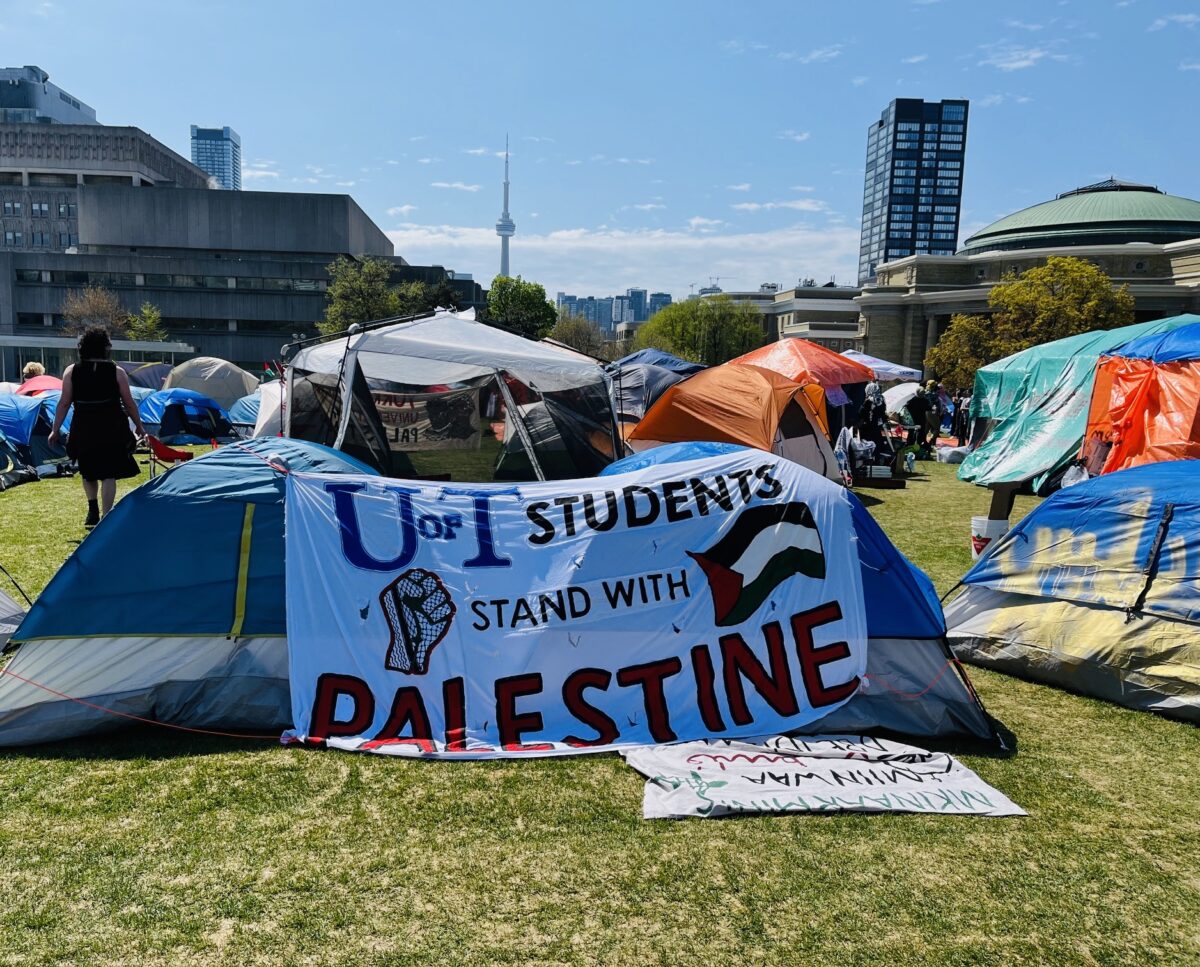As the Israel-Hamas war in the Gaza Strip drags on and as current hostage negotiations unfold in Cairo, Palestinian encampments have been sprouting up like dandelions at scores of universities across the United States and Canada.
Three days ago, Palestinian students at the University of Toronto, the largest institution of higher learning in Canada, set up an encampment on a grassy field at King’s College Circle. The unauthorized encampment, dubbed “The People’s Circle for Palestine” and “Little Gaza,” is inside a makeshift fence plastered with a profusion of stark signs glorifying the Palestinian cause.
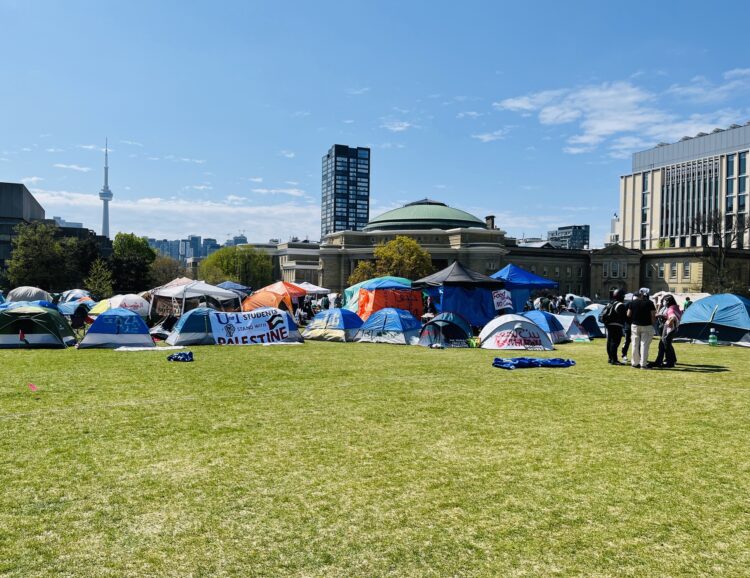
The Palestinians and their supporters claim they will not leave the university grounds until their demands are met in full. They echo those of other Palestinian encampments.
They want the university to publish a complete list of its endowment investments and divest funds from Israel. The university must withdraw assets that “sustain Israeli apartheid, occupation and illegal settlement of Palestine.” The protesters are also demanding that the university should sever relations with Israeli academic institutions.
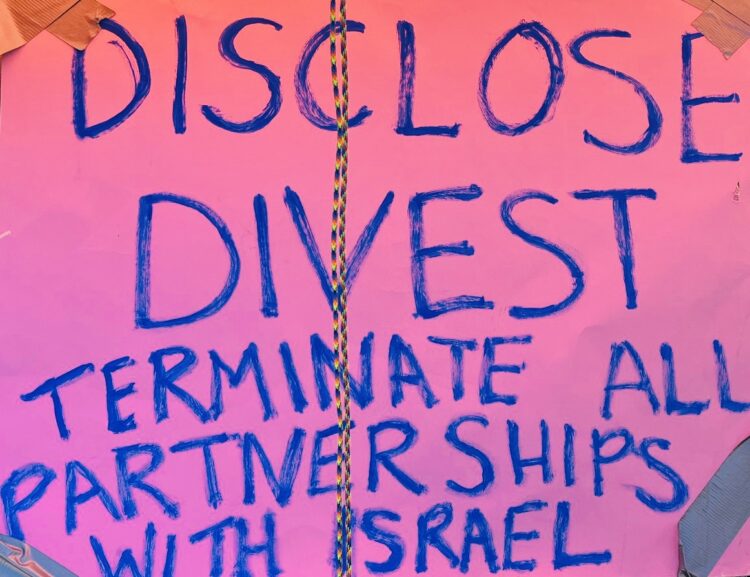
University administrators contend that the encampment is illegal and that trespass laws have been contravened: “We have made it clear that these activities fall outside of our policies and relevant law and are considered unauthorized on our private property.”
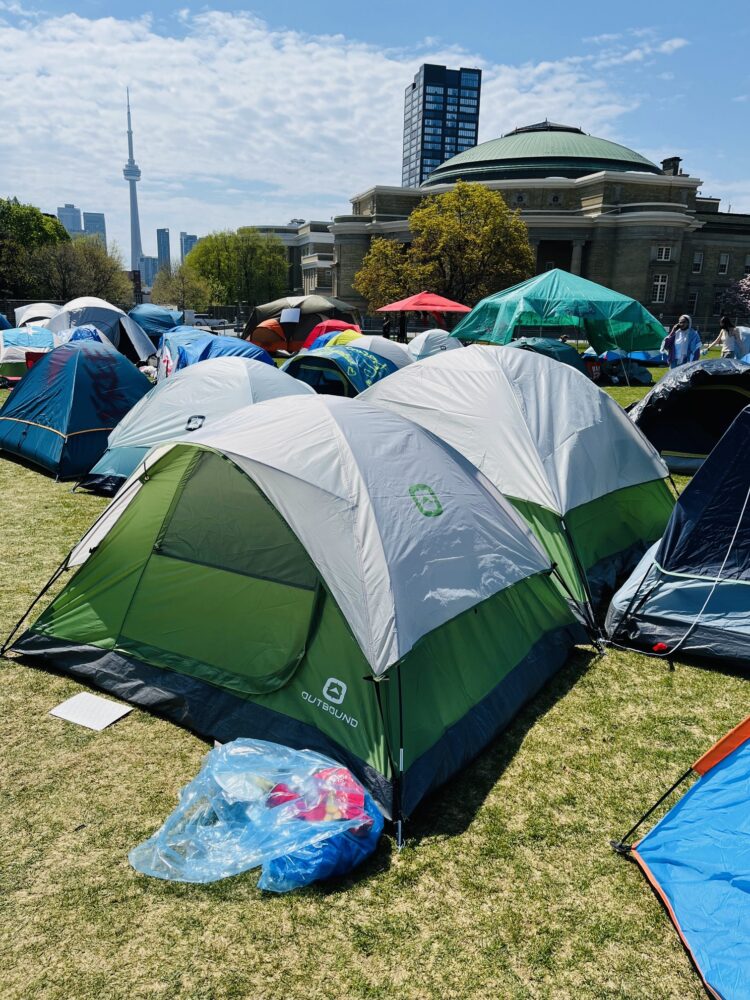
The university cited such contentious concerns as the “lack of crowd control, health and safety risks, the destruction of property, and the use of language that is considered discriminatory, threatening or hateful.”
So far, the university has not announced a plan to remove the encampment.
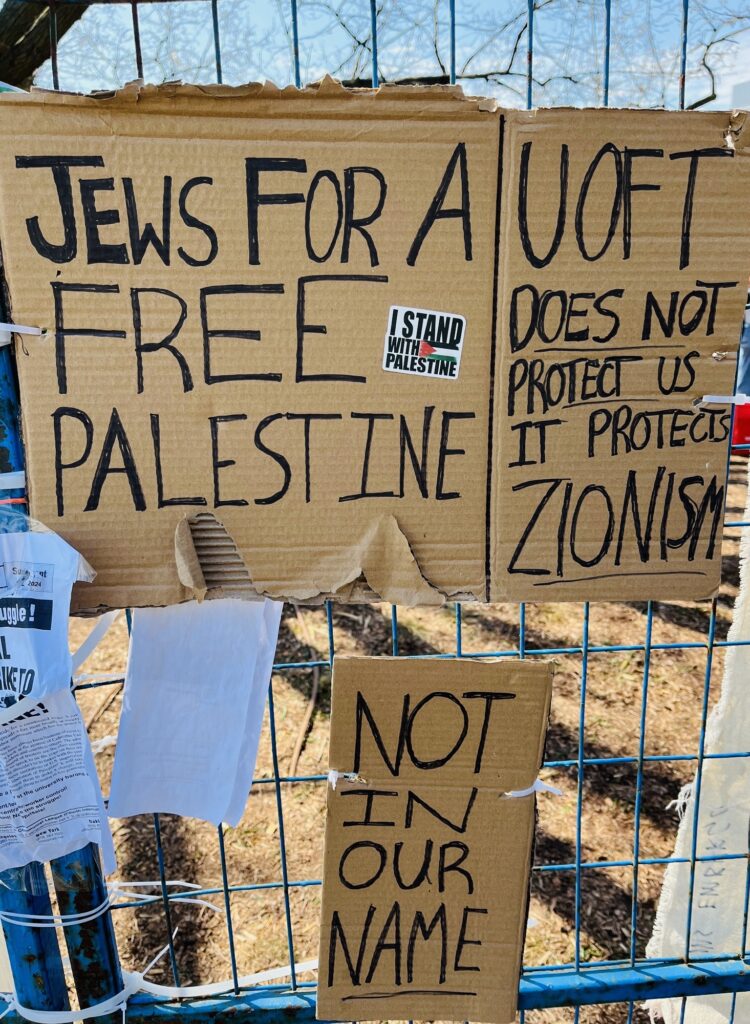
I visited the site yesterday, on a sunny morning signifying the belated arrival of spring. As I walked outside the enclosure, I saw the following signs: “Stop Arming Israel,” “We Shall Return,” “Jews Fight Against Zionism, Capitalism, Imperialism, Occupation And Settler-Colonialism,” Our Tuition Will Not Be Spent On Genocide,” “Jews For A Free Palestine,” “Our Liberation Is Bound Together, Free Palestine,” and “From The River To The Sea.”
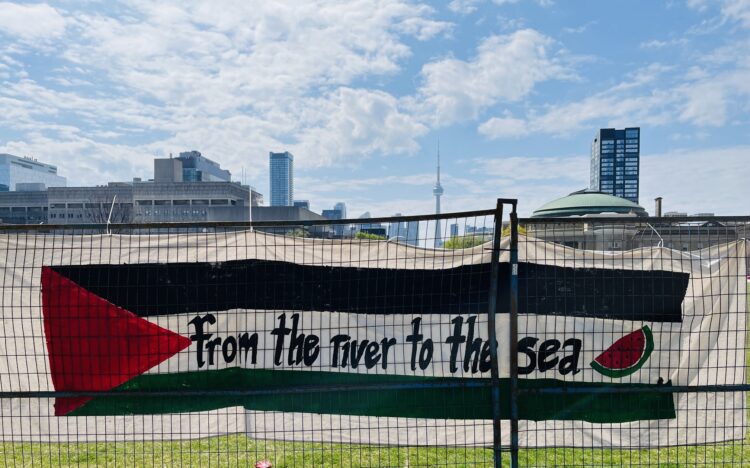
I was granted permission to enter the encampment only after I verbally agreed with four interlocking guidelines: “Palestinians have the right to resistance.” “They have the right to self-determination.” “Jerusalem as the capital of Palestine.” “Palestinians have the right of return.”
These restrictive guidelines indicated to me that there are drastic limits to the expression of free speech in the Palestinian camp.
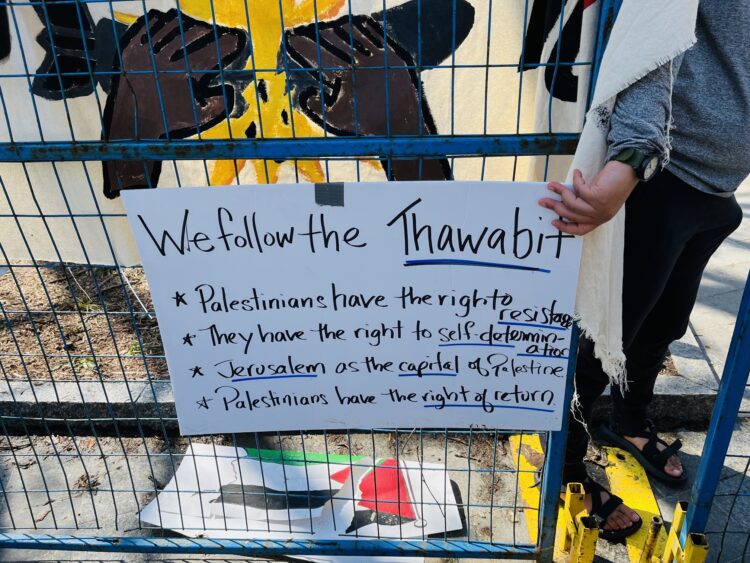
Being a supporter of Israel, I could not possibly concur with all these conditions, particularly the first and last ones. But since I wanted to gain access to the encampment, I lied.
I spoke to six male and female students, all but one of whom are the sons and daughters of Palestinian Arabs from what is now Israel. The sixth student, an Egyptian Muslim, studies at York University, a hotbed of Palestinian activism.
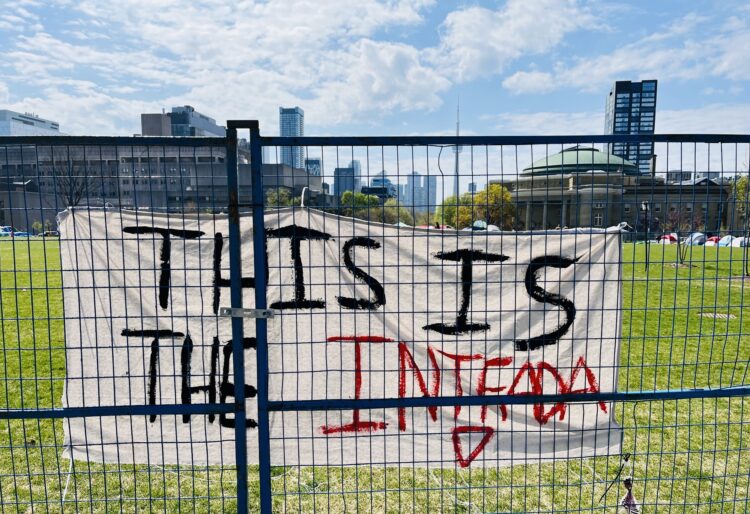
They were all polite, and no one I met was hostile. I told them I was interested in ascertaining their views. I was not there to engage in a heated debate. I simply wanted to listen. They did not ask me questions about my background, and I refrained from volunteering any information about it.
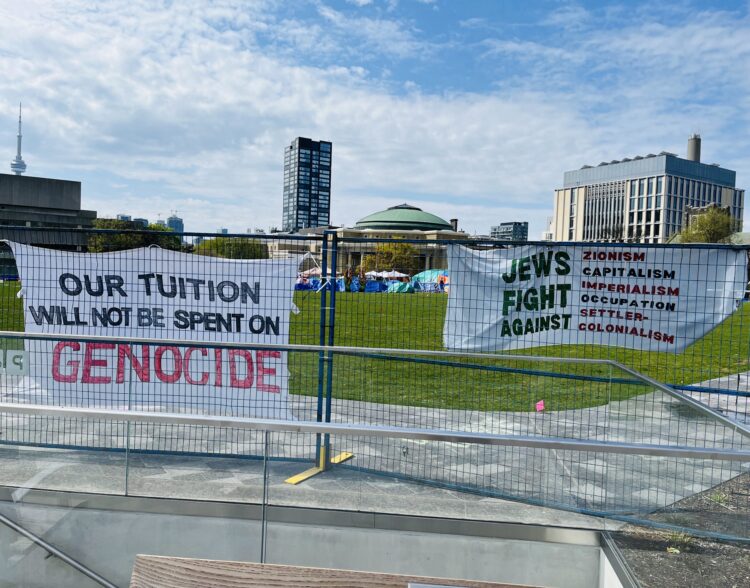
When I asked them to explain the meaning of the slogans “Free Palestine” and “From The River To The Sea,” they all conveyed the same answer: a binational or Palestinian state of its Muslim, Jewish and Christian citizens in place of Israel. They were certain that Muslims, Jews and Christians would be able to coexist in one such single state. They claimed that Muslims and Jews in Palestine coexisted before the advent of the modern Zionist movement.
They categorically rejected Israel’s existence, claiming it was established on Palestinian lands. They did not endorse a two-state solution, dismissing it is an unworkable idea.
They drew a distinction between Jews and Zionists, claiming they have nothing against Jews or Judaism per se. One student said, “Jews and Palestinians are blood brothers, we come from the same family.”
They ignored the reality that most Jews are Zionists in the sense of supporting Jewish statehood and feeling emotionally close to Israel, especially after the Holocaust.
Some of the students recognized that Jews are indigenous to Israel, but added that Palestinians have lived in this land for centuries as well.
All of them condemned antisemitism, claiming it was contrary to their values and beliefs.
They placed Hamas’ October 7 attack in southern Israel within the framework of violence on both sides over the last century, saying that Israelis are also guilty of murder and rape.
I have no way of knowing whether they were totally sincere in addressing my questions. It it conceivable that they were putting their best face forward. This caveat notwithstanding, I think they were speaking candidly.
Yet the truth bites.
The Palestinians I encountered turned back the historical clock. They did not speak of a modus vivendi between Israel and the Palestinians in terms of a two-state solution. Rather than referring to the 1967 Israel-Arab armistice lines, they went back to 1948, the year Israel proclaimed and fought for its independence in the face of an invasion by five Arab armies.
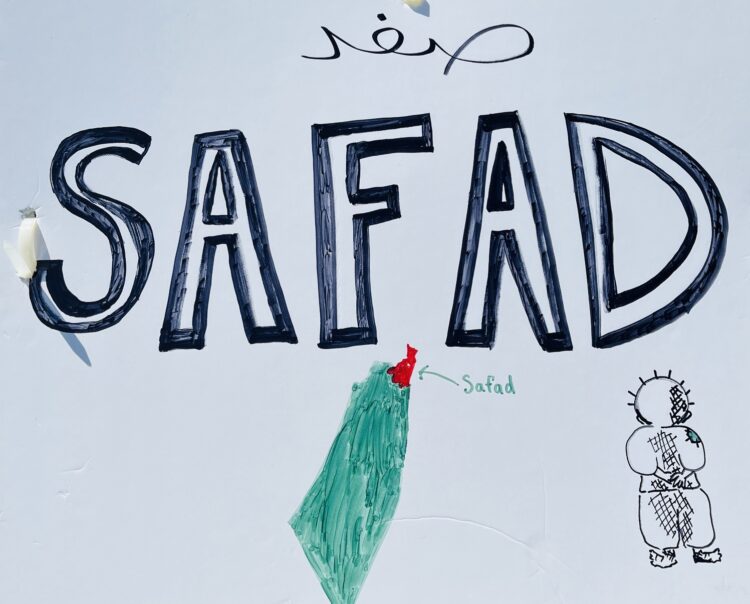
A poster inside the encampment referenced Safad as a Palestinian city on a map that eliminated Israel. Although Safad is regarded as a holy city by Israeli Jews, it is also the birthplace of Mahmoud Abbas, the president of the Palestinian Authority.
The Palestinians I talked to did not praise Hamas, but their views converged with that Islamic organization, which rejects Israel’s sovereignty and statehood.
Judging by their comments, we have been thrown back into the past.
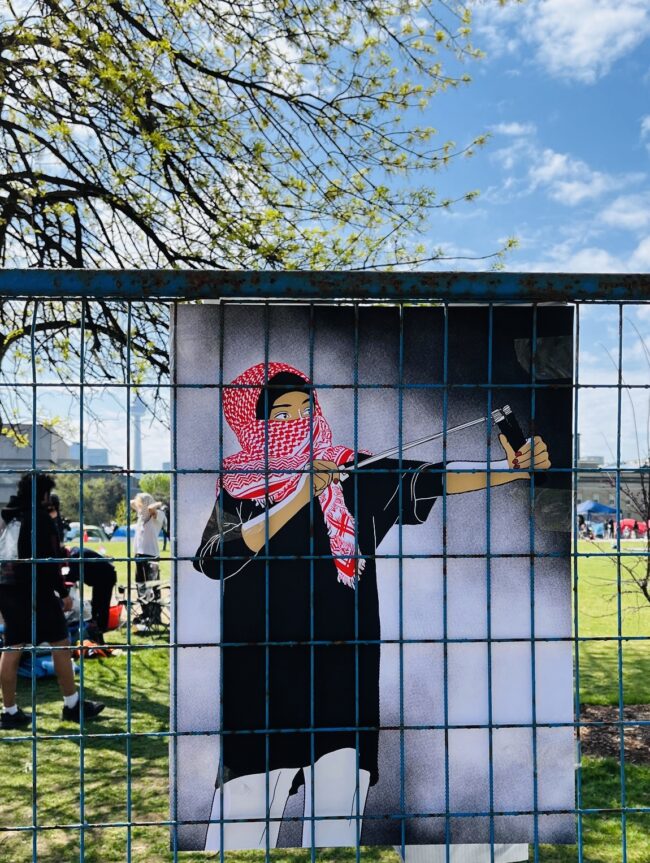
The Palestinian students in this encampment appear to be maximalists who are not open to compromise. They definitely do not accept Israel’s existence, even within its pre-1967 borders. And, taking a page out of Iran’s playbook, they believe that Israel can be worn down and destroyed by military, political and economic means.
From this somber perspective, Israel faces a determined, self-confident and resilient enemy in this new generation of highly-motivated and educated Palestinian nationalists.
No one should be under any illusions after visiting a Palestinian encampment.
